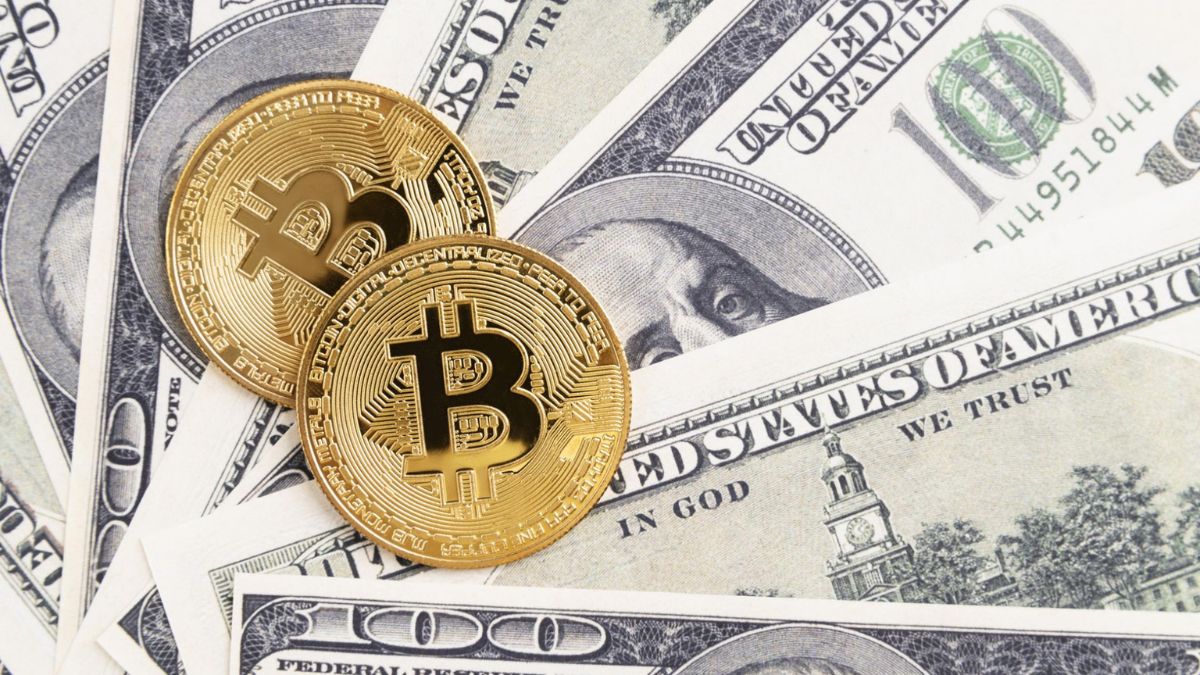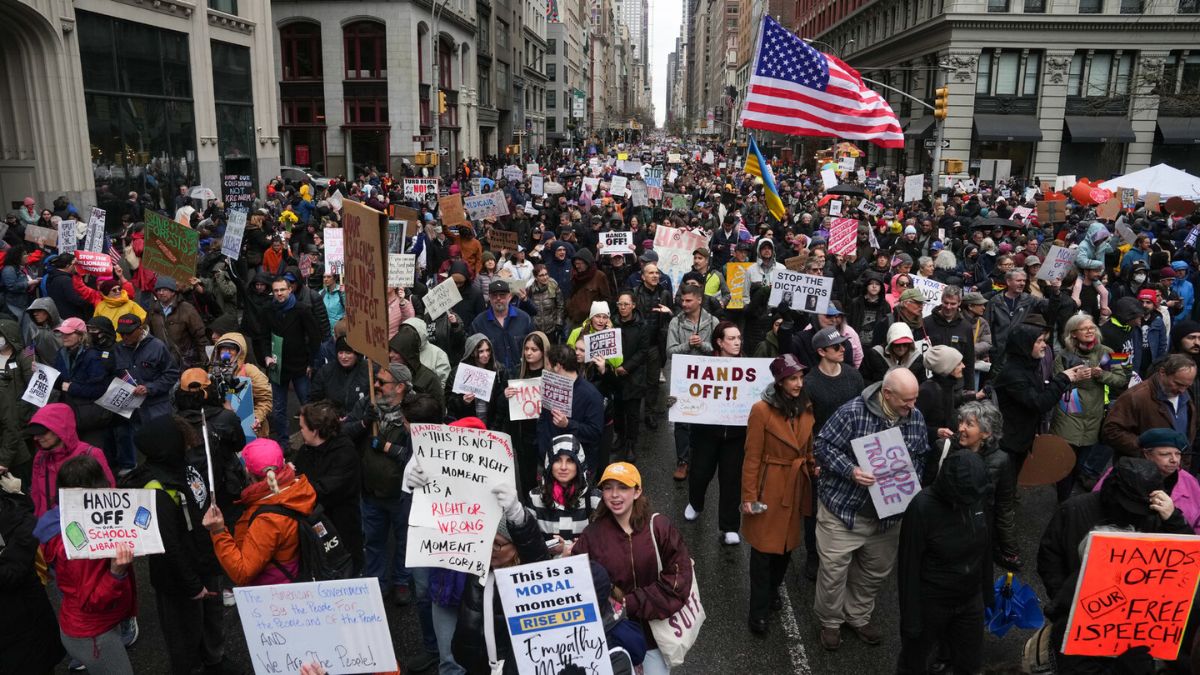A Bigger Trade War, Same Old Political Circus
Well, here we go again. Another day, another tariff tantrum. Only this time, it’s China that’s had enough of being slapped around. On Friday, Beijing threw down a 34% tariff on all U.S. goods. That’s not a warning shot — that’s a direct hit.
This latest move isn’t happening in a vacuum. Just two days earlier, President Donald Trump — back in office and clearly bored — announced an identical 34% tariff on Chinese imports. His excuse? “Reciprocal tariffs,” he said at a staged White House event, targeting countries he claims “treat us badly.” (Ironically, many of them are trade partners the U.S. used to wine and dine before this new wave of “America First” muscle-flexing.)
Add that to the already existing 20% in other tariffs Trump has lobbed at China since January, and we’re staring at a full-blown 54% wall on Chinese goods coming into the U.S. — a wall that, surprise surprise, American consumers and farmers will end up paying for.
Beijing’s Gloves Are Off
China didn’t take long to swing back. In a scathing Friday statement, the Ministry of Finance called the U.S. move exactly what it is: “a typical act of unilateral bullying.” They’re not wrong.
They also said it violates international trade rules and damages not just China’s interests, but global supply chains — a point Wall Street didn’t miss. U.S. stock futures and European markets promptly nosedived, right as Beijing’s announcement landed during a public holiday in China. Perfect timing.
The 34% tariff goes live next Thursday. That’s right after America’s own tariff hits on Wednesday. So if you thought your iPhone or next chicken sandwich might get cheaper this summer, think again.
China Isn’t Just Playing Defense Anymore
This isn’t the measured, diplomatic China we’ve seen in the past. Until now, Beijing had kept retaliatory tariffs at 10 to 15%, hitting only specific industries. But not this time.
“This reflects a shift in tactics,” said Tianchen Xu, a senior economist at the Economist Intelligence Unit. And he’s right. China is swinging wider, and harder — likely to force Trump to the table before this economic food fight turns into a full-scale demolition derby.
And here’s the kicker: China might even be willing to trade some concessions — maybe even sign off on the U.S. sale of TikTok — if it means these tariffs get rolled back. Because let’s be honest: TikTok isn’t just a social media app — it’s a billion-dollar pawn in a digital Cold War.
Farmers, Tech Giants, and Chicken Wings Take the Hit
China’s latest retaliation isn’t just about taxes. It’s also about what they’re banning.
The agriculture sector, already gasping from years of trade whiplash, just got hammered again. China suspended all chicken imports from three U.S. companies and sorghum imports from C&D (USA) Inc. — citing “health concerns.” Sure, maybe it’s about food safety. Or maybe it’s just a giant middle finger to Midwest farmers who rely on China to stay afloat.
On top of that, 11 more U.S. companies were thrown onto China’s “unreliable entities” list. These businesses can now kiss their Chinese deals goodbye. And for good measure, 16 others were slapped with fresh export controls.
You know what else got dragged into this mess? Medical technology and rare earth minerals — including some exotic-sounding elements like gadolinium, terbium, and dysprosium. If you’ve never heard of them, you’re not alone — but they’re critical in making everything from MRI machines to missiles. Good luck building those without China.
When the World Catches Cold from Two Sneezing Giants
Let’s not pretend this is just about the U.S. and China. When two massive economies go at it like this, everyone else gets caught in the crossfire — especially smaller nations who depend on both for trade and tech.
Supply chains — already a mess since COVID — are now in for more pain. And if China cuts off rare minerals entirely? The U.S. won’t just struggle — it’ll scramble. As Xu put it bluntly: “The U.S. will lose access to all China-produced critical minerals, and it will struggle to find replacements.”
That’s economist speak for: “Good luck building a smartphone, electric car, or missile without China’s minerals.”
Same Old Trade Drama, New Headaches
If this all sounds familiar, that’s because it is. The U.S. and China have danced this tariff tango before. Trump’s original trade war back in 2018 tanked markets, spooked farmers, and jacked up prices for regular Americans. And here we are again — same song, just a worse chorus.
The U.S. imported nearly $439 billion in goods from China last year — that’s not chump change. Meanwhile, it only exported $143.5 billion. That trade gap, often cited by Trump as proof that “we’re getting screwed,” doesn’t tell the full story. Because in real life, economics is more complicated than who sold who more T-shirts.
What’s Really at Stake Here?
Power. Control. Elections.
Trump’s tariff game isn’t just about trade — it’s about politics. Waving a flag of economic nationalism is great for headlines and rally chants. But it doesn’t pay farmers’ bills or lower grocery prices.
And China? It’s tired of being treated like a punching bag. This latest move shows they’re ready to trade punches, not just duck them.
If history is any guide, the real victims of this political chest-thumping will be — you guessed it — everyday people. The ones who buy phones, eat chicken, or try to run small businesses that rely on cheap parts from overseas.
Final Thought: Trade Wars Are Easy to Start, But Damn Hard to Win
Let’s stop pretending this is some master chess game. It’s not. It’s two global egos colliding — and dragging their people along for the ride.
China’s tariff smackdown may look aggressive, but it’s a reaction to years of economic bullying. Trump’s move may feel tough, but it’s clumsy and risks hurting Americans more than it helps.
Meanwhile, the rest of us? We’re just here, watching prices go up, markets get shaky, and leaders use our lives as poker chips.
And for what? Some politicians’ fragile pride?
The global economy isn’t a playground. It’s a web — pull too hard on one end, and the whole thing shakes.
But sure, let’s all just keep pretending this trade war is about fairness. Because nothing says “fair” like two billionaires playing economic chicken while everyone else gets crushed under the wheels.
Related Reads:
- What is the U.S.-China trade deficit, really?
- Rare Earths: Why You Should Care About Dysprosium and Friends
- Trump’s Trade War Timeline — All Bark or Actual Bite?
Let me know if you want this as a blog post, Twitter thread, or newsletter-ready breakdown.



